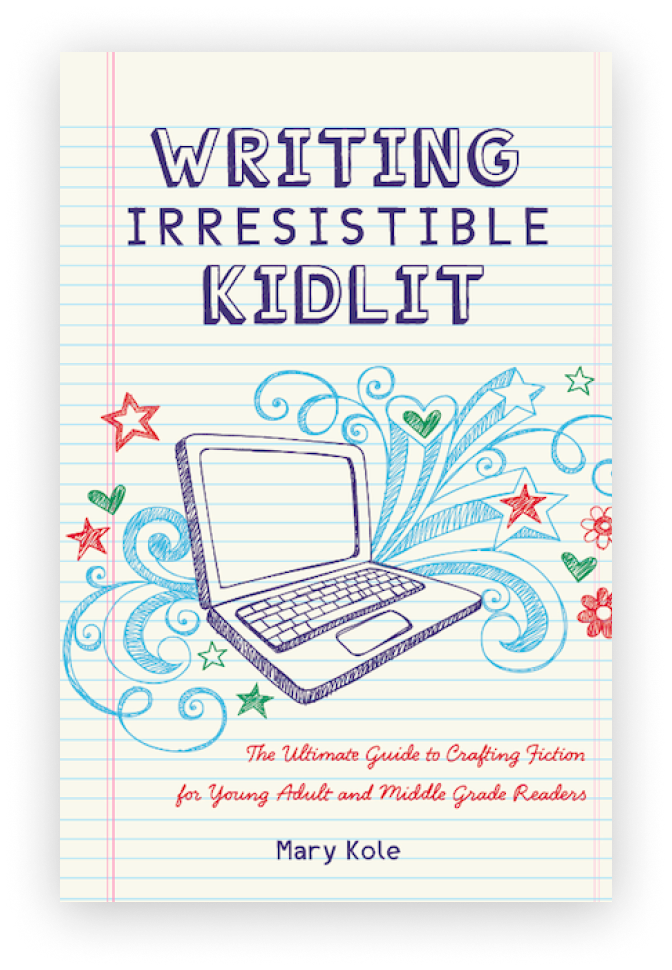Writing With Universal Theme
In Mind
By Mary Kole
Mary Kole is a former literary agent, freelance editor, writing teacher, author of Writing Irresistible Kidlit, and IP developer for major publishers, with over a decade in the publishing industry.
A universal theme is an essential ingredient for any work of fiction, but the secret sauce is … you don’t really want to state it outright. (With the exception of the “theme stated” beat if you’re using the Save the Cat Writes a Novel methodology, and even then, it’s a secondary character talking about the theme, not the narrator or author.) A universal theme is the idea or message that runs through the entire story, connecting all the various elements of plot and character development. The concept of universal theme is especially important in creative writing because it gives readers something to take away from the story—a feeling, a moment of reflection, something they can take into their real life, or an overarching feeling. Let’s take a look at how you can craft a meaningful universal theme for your novel.
What Makes a Good Universal Theme?
When it comes to creating a successful universal theme for your novel, here are some qualities to think about. First and foremost, your theme should be relevant and relatable—something that resonates with modern readers and speaks to their daily experiences, though the more specific the better. I know that seems like a strange thing to say—make it universal and specific, but you’ll find that some of the best universal themes manage to do just that. For example, feeling like an outsider among friends. Have you ever experienced that? We all have, unfortunately. This is what I mean by thinking of an idea that’s both specific and universal.
Additionally, while your theme should be approachable and easily understood by readers, it should also be complex enough to explore a few layers of the human experience. Don’t just go for “love,” but maybe “unrequited love.”
Finally, your universal theme should have some kind of emotional impact on readers—it should offer them insight into themselves and the world around them. Readers do like to get something out of a reading experience. Ideally, your novel will both make readers care and will also make them think.
Developing Your Universal Theme
Once you've decided on the kind of universal theme you want to explore in your novel, you can begin developing plot and characters that can bring this theme to life. Think about where your universal theme might fit into the overall arc of the story. Is the theme introduced (subtly) at the beginning? Come center state during the inciting incident? Will there be a reversal or will you raise the stakes by the midpoint? Will the theme be challenged at the climax?
And then, think about the main character in the story. How is the theme reflected in the protagonist's journey? How will they drive the plot forward by acting on their understanding of theme? As you create scenes within your story that embody your universal theme, make sure they are connected in some way to larger questions about life and humanity and being alive as a whole. That way, when readers reach the end of your novel, they'll walk away with more than just entertainment—they'll have something meaningful to resonate with.
Connecting Character and Plot With a Universal Theme
Your characters are going to be integral in establishing your universal theme throughout the course of your narrative arc. As you create each character's backstory or motivations for their decisions within the plotline, keep in mind which universal theme each character embodies, and how those themes are related, or even sides of the same coin. How do the various characters’ struggles reflect on larger ideas about life?
Make sure each character follows through with their arcs so that there is resolution between them and whatever universal themes were explored throughout their journeys by the end of the story. Feel free to include irony or show the dark side of your universal theme as well. If we run with the above “unrequited love” example, maybe one character is able to win over their love object, but another pursues their unrequited love target so desperately that they ruin their own experience.
Universal themes are powerful elements of fiction writing because they give readers something meaningful to take away from your work—a feeling, an idea, or even just an understanding that no matter what we face in our lives, we can overcome our struggles, or at least learn from them.
Crafting a successful universal theme involves understanding what kinds of universal themes modern readers might find relatable, as well as incorporating your driving idea into both your characters and plot arcs. Take care never to moralize, though, as that’s not how you will want to write a meaningful book. As long as you’re intentional with your universal theme, you’ll really leave readers with something lasting and insightful.
This post contains affiliate links.

Click here to purchase Writing Irresistible Kidlit, my book on fiction craft for MG and YA novels, out from Writer's Digest Books. This will show you my writing craft philosophy and give you lots of valuable advice, including tips for the novel revision process and self-editing. There are over 35 example novels cited and discussed throughout. It’s a valuable resource for any writer’s toolkit.
Click here to purchase Irresistible Query Letters, my book on query letters, including over forty examples with comprehensive notes on each one. There’s a ton of submission advice, best practices, and insider information in these pages, and you’ll really enjoy seeing what other writers are doing in the slush.
Click here to purchase Writing Interiority: Crafting Irresistible Characters, my book on interiority and character creation. Explore your protagonist’s thoughts, feelings, reactions and interpretations, expectations, and inner struggles to create a rich, immersive experience. This guide will empower you to create characters who live and breathe on the page, fostering an unbreakable bond with your audience.





